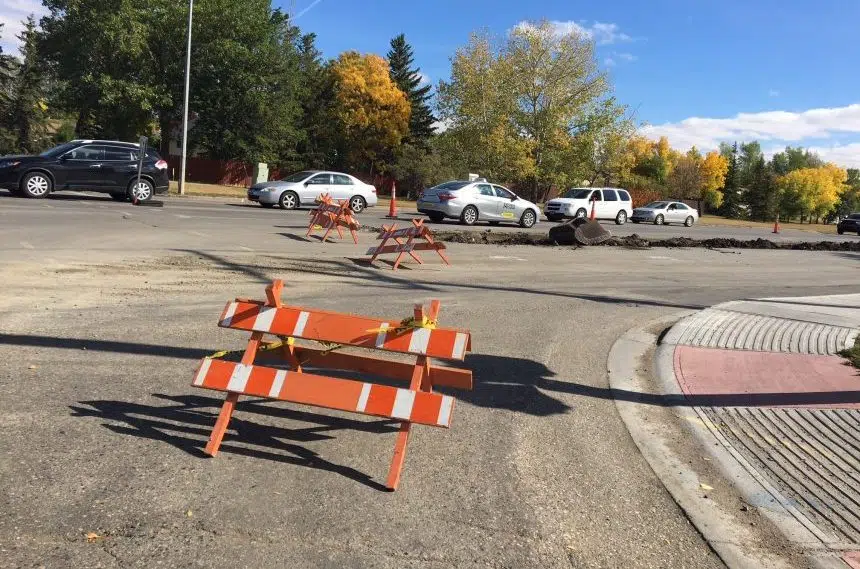Regina city councillors met by video link Wednesday to debate and decide how to move money around to make up for a projected shortfall of $20 million if COVID-19 outbreak measures last until September and $12.1 million if they end in June.
“We are in uncharted waters and we’re not seeing a shoreline right now,” Mayor Michael Fougere said to sum up the financial situation at the end of the meeting.
Councillors spent several hours discussing a COVID-19 financial update report outlining options about what services and projects could be delayed or scaled back in order to balance the budget. It is against the law for municipal governments to run a deficit so the city has to find money somewhere to pay for operating essential services.
Council voted to delay nine capital projects under the road renewal program including: Academy Park Road, Procter Place, Calder Crescent, Chisholm Road, Fourth Avenue North, Centennial Street, Kutarna Crescent, Willowview Street and McTavish Street.
Those projects were chosen because they could stretch over two seasons and could require temporary water hookups inside homes.
While the city will move forward with other road construction projects worth $11 million, delaying work on the nine streets will allow for the transfer of $6.4 million into the operating budget to help cover costs of essential services during the COVID-19 outbreak response.
Other major capital construction projects like Wascana Pool, Maple Leaf Pool and Regent Park renewal will move ahead this season.
“We are not stopping capital construction other than the projects that we have identified so citizens should take some confidence in the fact that we are going to continue to deliver on our capital program,” city manager Chris Holden told council.
“This is important for a number of reasons. We need to keep our employees working, we need to keep the economy moving and a number of those projects are contracted out to local businesses,” Holden explained.
Half a million dollars from the traffic infrastructure renewal program which is normally dedicated to replacing street lights and traffic signals has also been moved into the operating budget along with $300,000 normally dedicated to culture and recreational programs. The city will also be holding off on introducing new transit services to the airport and Westerra in order to offset operating expenses in other areas this year.
After considering a recommendation to scale back the spring street sweeping program and focus only on major roads to cut costs, council voted to reinstate the full program to cover all residential streets. The money to pay for this program will require the city to dip into reserve funds.
The street sweeping program was deemed an important service in order to limit dust and debris on side streets and prevent future problems with clogged drains.
A decision was also made to continue with the horticulture program to plant flowers around the city for a cost of $300,000 funded through the reserves in the winter road maintenance budget. Parks and recreation maintenance will be scaled back to “asset protection” service levels in order to account for social distancing restrictions.
“We do expect to have some financial support coming from the federal government. We’re hoping that the gas tax transfer will be enhanced maybe two to three times to help us get through our operating shortfall,” Fougere explained after the meeting. “We are not going to rely on taxpayers in any way to fund this whatsoever.”
Regina Exhibition Association Limited (REAL) put in a request to the city to be approved to restructure its line of credit by $3.8 million in order to have the cash flow to make payroll and pay its bills with no revenue coming in.
“REAL can begin to plan and have their operations go forward into the future. They were very much against the wall in terms of funding, having completely dried up any kind of business coming into the property for the foreseeable future, so this allows them to have funds available to pay their staff and continue on providing services,” Fougere said.
The total debt limit for REAL will remain at $13 million but the city did approve more flexibility to deal with the crisis cash flow situation that could see the organization run out of money completely by May.
Three unions representing city workers made a joint submission asking the city to consider implementing a supplementary employment benefit for city workers who have been laid off during the COVID response. The motion was made to study and revisit that request in May, while also asking other levels of government to extend emergency wage supports to municipalities which currently don’t qualify.
An application by the Chamber of Commerce asking for a 25 per cent property tax cut for businesses to be repaid over the course of the next several years was put off for more study and will be raised again in July.











